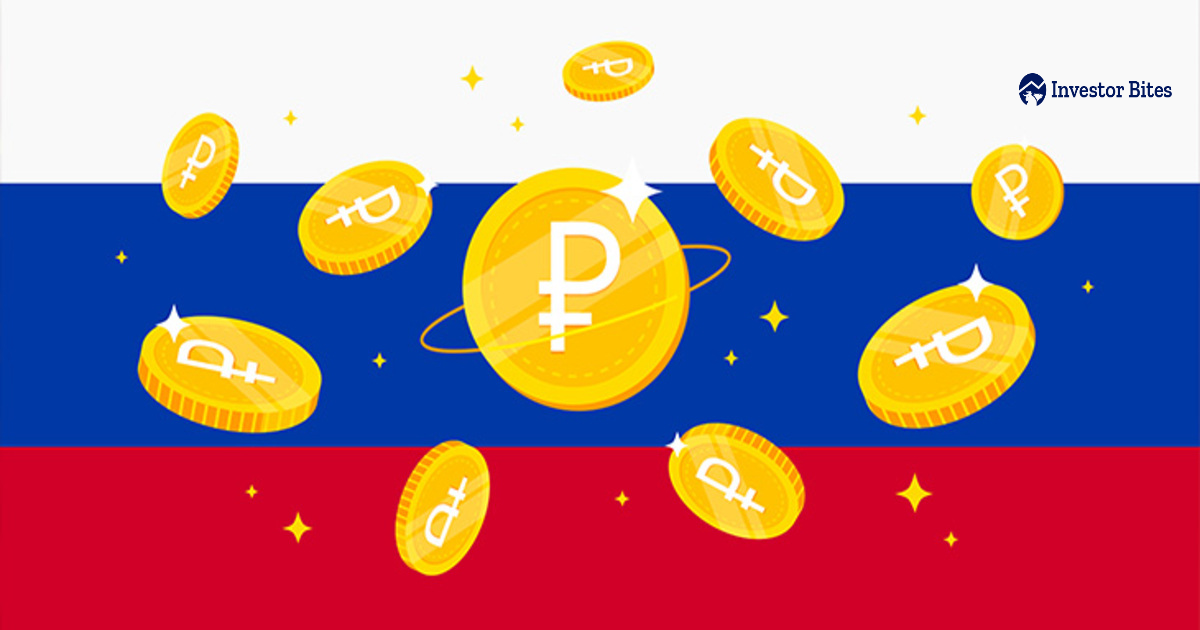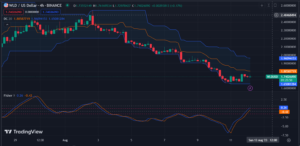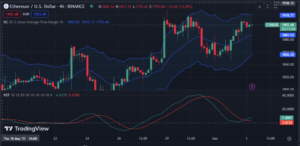
SNEAK PEEK
- Russia advances towards a digital ruble despite international isolation over Ukraine.
- The digital ruble could mitigate Russia’s economic troubles and cross-border payment issues.
- The digital ruble’s potential benefits are still under debate, and hurdles remain.
Defying international isolation over its war in Ukraine, Russia is rapidly advancing towards launching a digital ruble. This groundbreaking move aligns it with numerous other nations testing the waters of electronic currency.
Moreover, reports suggest that the Federation Council, Russia’s upper house of parliament, will review legislation on Wednesday. If passed, this legislation could allow the Bank of Russia to initiate testing of the digital ruble as soon as next month.
According to the International Monetary Fund, over half of the world’s central banks are developing or exploring digital currencies. India, Japan, and China, among at least 20 others, are piloting these programs. Furthermore, China’s digital currency project now touches the lives of 260 million citizens, as per research published by the Atlantic Council.
Conversely, in response to harsh sanctions by the US and its allies, which have severed Russian banks from the global financial system, Russia strives to mitigate the economic impact by fortifying trade in national currencies. These sanctions followed Russia’s February 2022 invasion of Ukraine.
The Russian currency has also tumbled 18% against the dollar this year, placing it behind only Turkey’s lira and the Argentine peso among the worst-performing emerging market currencies. Thus, some Russian lawmakers view the digital ruble as a possible tool to smooth cross-border payments.
On the same note, Nikolay Zhuravlev, the deputy chairman of the Federation Council, recently emphasized the necessity of independent payment instruments for trade with foreign partners in the current economic climate.
However, the digital ruble would first need to link to other countries’ currency platforms for international transactions, a step that hasn’t yet occurred. Alexandra Prokopenko, a former adviser at the Russian central bank, noted that the digital ruble, for now, might make domestic transactions more convenient.
In conclusion, the turbulent Russian economy awaits the advent of the digital ruble, whose potential benefits and challenges continue to foster debate. Whether it proves to be a relief or an added burden remains to be seen.
- SEO Powered Content & PR Distribution. Get Amplified Today.
- PlatoData.Network Vertical Generative Ai. Empower Yourself. Access Here.
- PlatoAiStream. Web3 Intelligence. Knowledge Amplified. Access Here.
- PlatoESG. Automotive / EVs, Carbon, CleanTech, Energy, Environment, Solar, Waste Management. Access Here.
- BlockOffsets. Modernizing Environmental Offset Ownership. Access Here.
- Source: https://investorbites.com/russia-forges-ahead-with-digital-ruble-amid-economic-strain/
- :has
- :is
- 20
- 2022
- 22
- a
- added
- advances
- advancing
- advent
- against
- ahead
- Aligns
- allow
- also
- Amid
- among
- an
- and
- ARE
- Argentine
- Argentine Peso
- AS
- At
- Bank
- Bank of Russia
- Banks
- BE
- behind
- benefits
- burden
- by
- central
- Central Bank
- Central Banks
- chairman
- challenges
- China
- Chinas
- Citizens
- Climate
- conclusion
- continue
- Convenient
- could
- Council
- cross-border
- cross-border payments
- currencies
- Currency
- Current
- debate
- deputy
- Despite
- developing
- digital
- digital currencies
- digital currency
- Digital Ruble
- Dollar
- Domestic
- Economic
- Economic Impact
- economy
- Electronic
- emerging
- emphasized
- Exploring
- external
- February
- Federation
- financial
- financial system
- First
- followed
- For
- foreign
- Former
- Foster
- from
- fund
- Furthermore
- Global
- global financial
- global financial system
- groundbreaking
- Half
- Have
- House
- HTTPS
- Hurdles
- if
- Impact
- in
- independent
- india
- initiate
- instruments
- internal
- International
- international monetary fund
- invasion
- investor
- isolation
- issues
- IT
- ITS
- Japan
- launching
- lawmakers
- least
- Legislation
- LINK
- lira
- Lives
- make
- Market
- Market News
- might
- million
- Mitigate
- Monetary
- Month
- more
- move
- National
- Nations
- Need
- news
- next
- noted
- now
- numerous
- occurred
- of
- on
- only
- or
- Other
- Others
- over
- parliament
- partners
- passed
- payment
- payments
- per
- Peso
- placing
- Platforms
- plato
- Plato Data Intelligence
- PlatoData
- possible
- potential
- Programs
- project
- proves
- published
- rapidly
- recently
- relief
- remain
- remains
- research
- response
- review
- ruble
- Russia
- russian
- same
- Sanctions
- seen
- smooth
- some
- soon
- Step
- Still
- strives
- suggest
- system
- Testing
- that
- The
- These
- this
- this year
- Thus
- to
- tool
- towards
- trade
- Transactions
- turbulent
- Ukraine
- under
- us
- View
- war
- War in Ukraine
- Waters
- Wednesday
- whether
- which
- whose
- will
- with
- world’s
- would
- year
- yet
- zephyrnet













